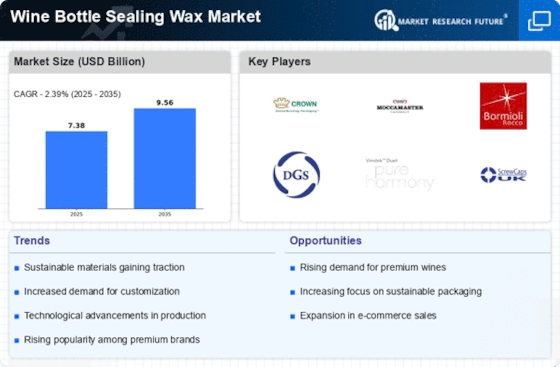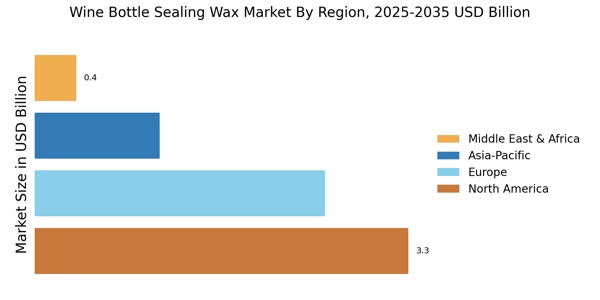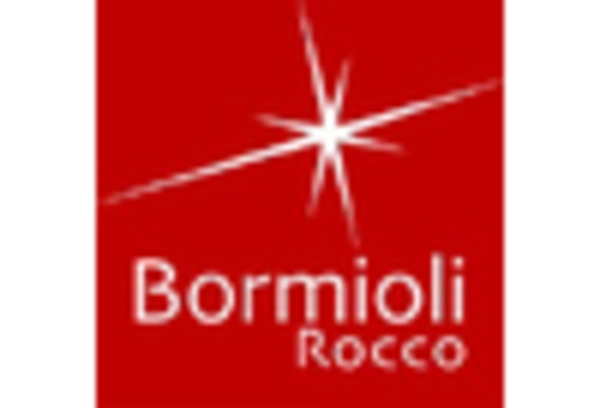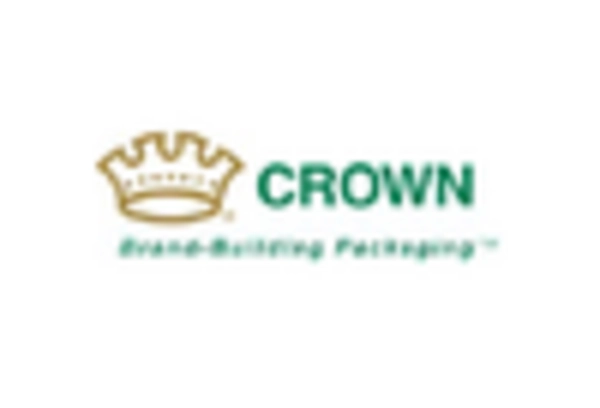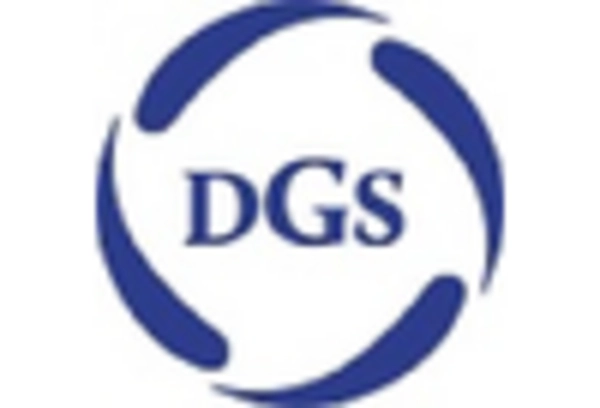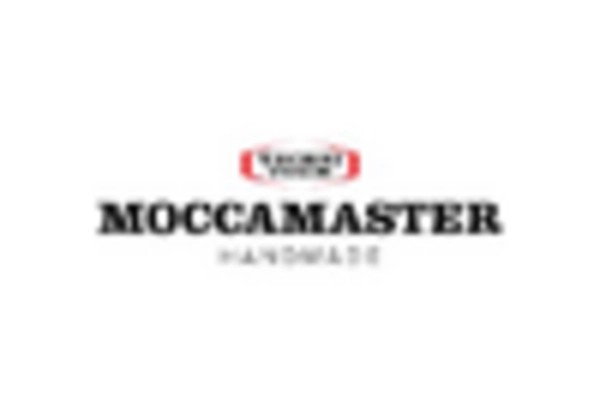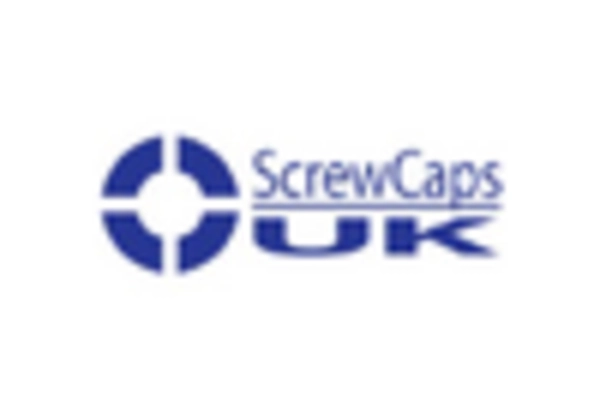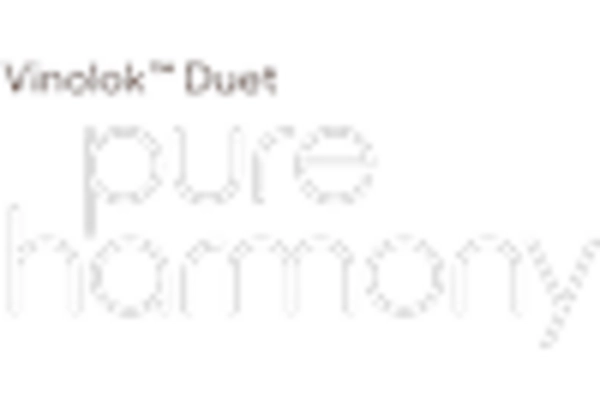E-commerce Influence
The rise of e-commerce is significantly influencing the Wine Bottle Sealing Wax Market. With the increasing popularity of online wine sales, the need for attractive and secure packaging has become paramount. Sealing wax not only provides an added layer of security against tampering but also enhances the visual appeal of products sold online. In 2025, it is estimated that e-commerce sales in the wine sector will account for over 20% of total wine sales, underscoring the importance of packaging in this channel. Wineries are recognizing that effective packaging, including the use of sealing wax, can enhance customer experience and reduce return rates. This trend indicates that as more consumers turn to online platforms for wine purchases, the demand for innovative and appealing sealing solutions will likely continue to grow.
Sustainability Initiatives
Sustainability initiatives are becoming a pivotal driver in the Wine Bottle Sealing Wax Market. As environmental concerns rise, consumers are increasingly favoring products that align with sustainable practices. Many manufacturers are responding by developing sealing wax made from eco-friendly materials, which not only reduces environmental impact but also appeals to the growing segment of environmentally conscious consumers. In recent years, the market has seen a shift towards biodegradable and recyclable sealing wax options, which are gaining traction among wineries looking to enhance their sustainability credentials. This shift is reflected in the increasing number of wineries adopting sustainable packaging solutions, with a reported 30% of wineries in 2025 indicating a preference for eco-friendly materials. Such initiatives not only contribute to brand loyalty but also position wineries favorably in a market that is progressively prioritizing sustainability.
Aesthetic Appeal and Differentiation
The Wine Bottle Sealing Wax Market is increasingly driven by the aesthetic appeal that sealing wax provides to wine bottles. As consumers become more discerning, the visual presentation of wine products plays a crucial role in purchasing decisions. Sealing wax not only enhances the overall look of the bottle but also serves as a differentiating factor in a crowded marketplace. In 2025, the market for wine packaging, including sealing wax, is projected to reach approximately 5 billion USD, indicating a growing trend towards premiumization in wine products. This trend suggests that wineries are investing in high-quality packaging solutions to attract consumers, thereby driving demand for sealing wax. Furthermore, the unique colors and designs available in sealing wax allow wineries to create a distinctive brand identity, which is essential for standing out in a competitive environment.
Consumer Preference for Premium Products
The Wine Bottle Sealing Wax Market is also driven by a notable shift in consumer preferences towards premium products. As disposable income rises, consumers are increasingly willing to invest in higher-quality wines that offer unique characteristics and packaging. Sealing wax serves as a symbol of quality and craftsmanship, appealing to consumers who seek authenticity in their wine choices. In 2025, the premium wine segment is projected to grow by approximately 15%, indicating a robust demand for products that stand out. This trend suggests that wineries are likely to adopt sealing wax as a means to enhance the perceived value of their offerings. By utilizing sealing wax, wineries can create a luxurious experience that resonates with consumers, thereby driving sales and fostering brand loyalty.
Regulatory Compliance and Quality Assurance
Regulatory compliance and quality assurance are critical drivers in the Wine Bottle Sealing Wax Market. As the wine industry faces increasing scrutiny regarding product safety and quality, the use of sealing wax has emerged as a method to ensure integrity and compliance with regulations. Sealing wax not only provides a tamper-evident seal but also protects the wine from contamination, thereby enhancing consumer trust. In 2025, regulatory bodies are expected to implement stricter guidelines regarding packaging materials, which may further propel the demand for sealing wax as a reliable solution. Wineries that prioritize compliance and quality assurance are likely to benefit from enhanced brand reputation and consumer confidence. This trend indicates that the intersection of regulatory requirements and consumer expectations will continue to shape the market dynamics for sealing wax in the wine industry.


